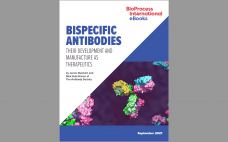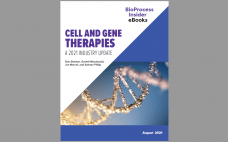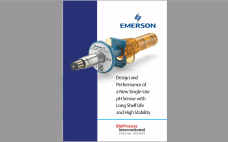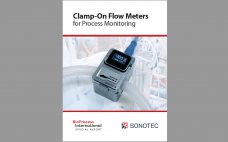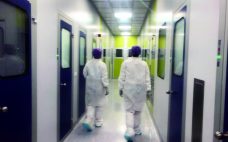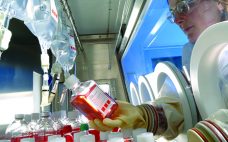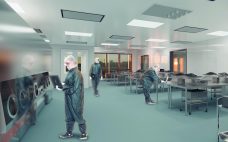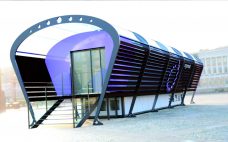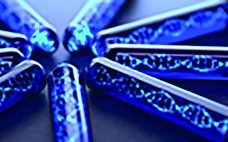Generating antibodies with two or more specificities is one of the most innovative fields in therapeutic antibody development, with tremendous potential for use in creating new treatments for patients with unmet medical needs. In particular, bispecific antibody development is stimulating innovations in bioprocessing techniques from expression through upstream processing and candidate purification. Wherever possible, process-development scientists and engineers are borrowing techniques that were honed for mature monoclonal antibody (MAb) platforms, then applying those to bispecific antibody manufacturing. Nevertheless, the unique…
Manufacturing
eBook: Cell and Gene Therapies —
A 2021 Industry Update
The US Food and Drug Administration (FDA) reports that as of June 2021, 22 advanced therapy products have received regulatory approval in the United States. The first such product gained regulatory approval in 2010. Since then, hundreds of cell and gene therapies have advanced to clinical evaluation, but few products have reached commercial stages — and those that have done so have been hindered by manufacturing problems. In this eBook, writers from the BioProcess Insider and Project Farma analyze trends…
Design and Performance of a New Single-Use pH Sensor with Long Shelf Life and High Stability
Single-use biopharmaceutical manufacturing systems require gamma-sterilizable, highly stable, accurate, and simple-to-use single-use pH sensors with a long shelf life. Herein we report the design and performance of a single-use pH sensor technology optimized for single-use bag applications such as those found in bioreactor and mixing applications. This technology is the basis of Emerson’s Rosemount 550pH Single-Use Sensor. The sensor is compatible with gamma irradiation and can be attached to a single-use bioreactor bag via industry accepted ports. With the incorporation…
Clamp-On Flow Meters for Process Monitoring
Process monitoring entails systematic recording or measurement of an operation or process by means of technical aids. Repeated, regular execution is a central element of that activity. Statistical process control and management help to optimize and stabilize processes. They also ensure appropriate monitoring of threshold values. Ultrasound-based clamp-on flow meters are ideal measuring methods for that purpose because they enable data collection without requiring operators or equipment to intervene in a process. Noncontact flow sensors also combine high precision with…
Mesenchymal Stromal Stem Cells: Next Steps and Considerations for CGMP Manufacturing
Massimo Dominici is scientific founder of Rigenerand srl, a joint venture between RanD (a biomedical company producing bioreactors for liver support and chemohyperthermic technology for cancer) and experts in cell and gene therapy at the University of Modena and Emilia Region in Italy. Rigenerand develops and manufactures medicinal products for cell-therapy applications (primarily for regenerative medicine and oncology) and three-dimensional (3D) bioreactors as an alternative to animal testing for preclinical investigations. The company also produces its own pipeline of cell…
Raw Materials for Advanced Therapies: When the Process Is the Product, Ingredients Are Key
Scott Burger and Bill Janssen are both established, independent consultants specializing in gene and cell therapies. This past spring, we three discussed several aspects of raw material strategy for advanced therapies as well as the need for trained technicians in the industry. With a bachelor of science degree in biology from Tulane University (New Orleans, LA, 1983) and a medical doctorate from the University of Pennsylvania (Philadelphia, PA, 1988), Scott Burger served his residency training and fellowship at Washington University…
Four Design Factors Shaping Multimodal Cell and Gene Manufacturing
Cell and gene therapy manufacturing is about to hit a breaking point. The tension lies between increasingly diverse research pipelines and a tradition of dedicated facilities built for single-product, large-scale manufacturing. That incompatibility is widening as more cell and gene therapy products progress toward commercial production, forcing manufacturers to make a choice: either invest in major facility modifications and complex technology transfers to keep up or break from tradition and explore the potential of multimodal manufacturing. More than half of…
Toward the Point of Care: Flexibility and Decentralization Are Key to Making Autologous Therapies More Readily Available
Part of the advanced therapy medicinal products (ATMPs) class of therapeutics, cell and gene therapies (CGTs) can be either autologous, using the patient’s own cells, or allogeneic, using master banked donor cells. Global biotechnology company Orgenesis focuses on autologous therapies, with processes and systems developed for closed and automated processing that have been validated for regulatory-compliant production at the point of care for patient treatment. This technology could help overcome the limitations of traditionally cost-prohibitive CGT manufacturing methods that do…
The Promise of Artificial Intelligence in Healthcare
The term artificial intelligence (AI) has become pervasive in conversations about the future of healthcare. AI has the potential to transform medicine through novel models of scientific discovery and healthcare delivery, ultimately leading to improved individual and public health. Yet misunderstanding and miscommunication abound. Thus, concepts related to AI need to be defined and explained to elevate our general level of understanding and our discourse around the topic. The Promise of AI in Healthcare AI has been studied by computer…
A Complete Solution for MSC Therapy Workflows: Cell Scale-Up, Cryopreservation, and DMSO Removal
Mesenchymal stem cells (MSCs) are used frequently for cell therapy applications. As multipotent cells, they can differentiate into other lineages such as adipocytes, osteocytes, and chondrocytes. Additionally, they are known to secrete trophic factors that can play important roles in immunoregulation. Although MSCs can be isolated from several different tissue sources, those derived from bone marrow commonly are studied because they are easy to access in quantities large enough for therapeutic dosing (2 × 106 cells/kg of body weight). Still,…

